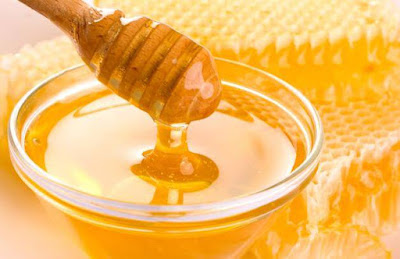Honey can do so much more than sweeten your tea. It is also believed to have antiseptic and antibacterial properties. From calming coughs to healing wounds, read on to learn about the ways honey may boost your health.
Did you know that in ancient times, Romans and Egyptians used honey to preserve bodies and heal battlefield wounds? It's true: Honey's got a lot of sweet benefits — and we aren't just talking about how good it tastes on biscuits.
With its purported antibacterial, antimicrobial, and antioxidant properties, honey has long been prized as a skin soother, wound healer, and more.* Check out these ways honey might boost your health.
1. Soothes breakouts
Because honey has antimicrobial and ant-inflammatory properties, it can help heal acne. Some people dab a bit right on the blemish, while others mix it into a mask.You can also find it as a touted ingredient in many skincare products.
2. Helps heal wounds
Evidence of honey's healing properties date back to Sumerian clay tablets estimated to be from 2500BC. Hippocrates lauded it as a healing ingredient.Today, many believe manuka honey, made from tea tree flowers, is a particularly effective healer.
In fact, manuka honey is a prime ingredient in the FDA-approved Medihoney, a medical-grade honey used to treat wounds and burns.
3. Suppresses coughs
Studies have shown that buckwheat honey is more effective at calming coughs than some over-the-counter cough suppressants, especially in children.Bonus: Darker honeys, such as buckwheat, tend to have higher antioxidant levels.
4. Boosts immunity
Raw and darker honeys in particular are high in immune-boosting antioxidants.Many believe that taking a spoonful of raw honey mixed with cinnamon at the onset of a cold can help lessen its effects.
*IMPORTANT! Never give honey to babies under one year of age, as it can put them at risk for botulism. And, as always, consult a medical professional for the treatment of illnesses and the use of honey to do so.
Some people can have allergic reactions to honey, so take care. It's also a source of sugar, which can be problematic for diabetics.
This article originally appeared on Delish.com.






